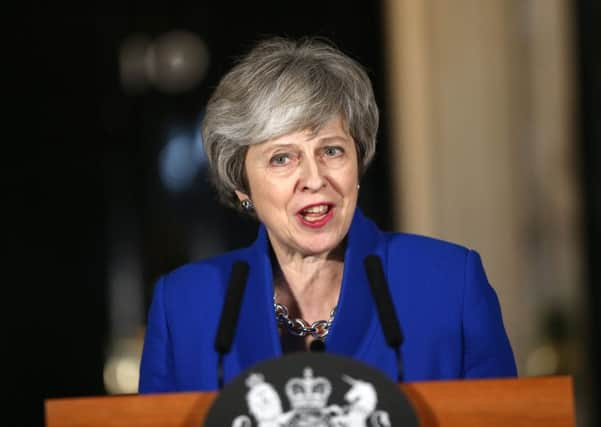Marley Morris and Kate Henry: May must give the North power over post-Brexit funding for left-behind communities


It looks as if her latest bid for a Parliamentary majority rests on making the case for a new financial settlement to rebalance the UK economy, and to finally support regions like the North. It would make sense if this new tranche of money forms part of the ‘Shared Prosperity Fund’, the Government’s planned post-Brexit replacement for European structural funds.
In recent decades, European structural funds have played a vital role in boosting growth and prosperity in some of the UK’s regions. The EU contributed around £1.2bn a year for the 2014-2020 period for the two main structural funds. Together with match funding, this amounts to around £2.4bn annually.
Advertisement
Hide AdAdvertisement
Hide AdIn the Leeds and Sheffield city-regions, the funding amounted to €600m (roughly £520m) for the 2014-2020 period. Yet there have also been problems with the funds: they are generally highly centralised, plagued with bureaucracy and form-filling, and offer limited opportunities for flexibility and innovation in how money is spent. And despite the successes of the structural funds, the UK is still one of the most centralised and geographically unequal economies in Europe.
As the European structural funds are phased out after Brexit, the new Shared Prosperity Fund therefore offers an opportunity to deliver a better system – fairer and more rooted in local communities. But, with just 30 days left until Brexit, the Government has still to consult, or publish details, on the new programme, which has caused increasing nervousness for communities such as South Yorkshire.
What should the Government do? There are three key priorities that the IPPR has set out today.
First, we argue that the funds should be devolved to the local level. Control over the funding is most sensibly placed in the hands of regions themselves, who know best how to spend the money for their communities. So the Government should therefore directly transfer the responsibilities for managing the funds to combined authorities (or to local authorities working within LEP boundaries where this is not possible).
Advertisement
Hide AdAdvertisement
Hide AdSecond, the fund should be based on a broader understanding of economic wellbeing. The way that European Structural Funds are currently spent depends on a relatively crude measure of economic performance (GDP per head), which doesn’t reflect peoples’ experiences of their economy.
A better approach for distributing the funds would factor in regional disparities in income and poverty. These measures tend to indicate that places like West Yorkshire are most in need. If measures of this type were included in the calculations, then it’s likely that these places would receive a greater slice of the pie.
Third, the fund should empower local residents to decide how and where the money is spent. Regions could, for instance, set up residents’ panels and influence how the funds should be spent. A certain share of the funds could also be devolved down to the neighbourhood level, in order to provide targeted funding to support social infrastructure such as community centres and green spaces.
As part of this process, local areas could harness the opportunity to experiment with new ways of involving communities in important funding decisions. Rather than setting prescriptive requirements about the funding from above, the Shared Prosperity Fund should put local communities in the driving seat.
Advertisement
Hide AdAdvertisement
Hide AdThis offers a unique opportunity to redesign how regional funding works to better harness the opportunities of the North. By devolving greater fiscal powers to combined authorities, redistributing the funds more fairly across the UK, and giving people more of a say over how funding is spent in their area, the fund could contribute to revitalising regional economies.
With the Government and the Prime Minister in the mood for compromise, Northern leaders and MPs should seize the opportunity to make their case for a more ambitious and democratic funding settlement for the region.
Marley Morris is a Senior Research Fellow and Kate Henry is a Research Fellow at the IPPR think-tank.